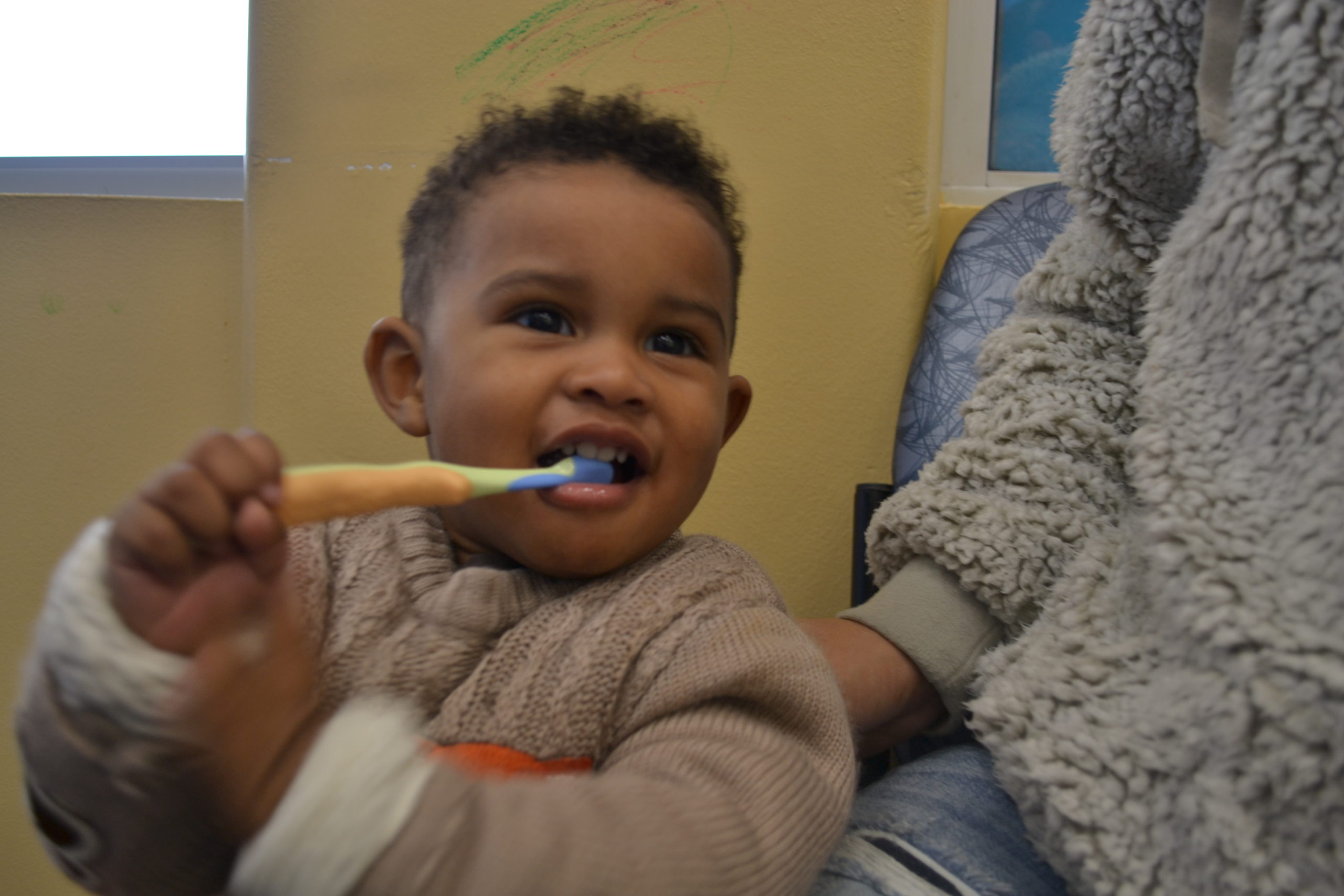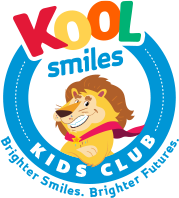
What to Do If Your Child’s Permanent Teeth Come in Before Their Baby Teeth Fall Out
Every child looks forward to little visits from the tooth fairy, but in some cases the permanent teeth start coming in even before the deciduous (or “milk teeth”) have fallen out. The primary dentition starts shedding at around 6 years of age, but with some kids permanent teeth start growing in behind the former. These are often known as “shark teeth.” It is important to remember that this condition is very common and often fixes itself – for all other times, we’re here to give those primary teeth a gentle nudge!
With numerous locations across 15 US states, our dentists are always there when you need them. When you’re in need of a quick fix, you can simply give us a call and schedule a free consultation!
Why Do Permanent Teeth Come In Before the Primary Teeth Start Shedding?
One of the main reasons why permanent teeth start pushing up behind the primary teeth is because of the size difference between the two – the former are generally larger, and the space occupied by the latter is not big enough for them to erupt into.
Usually, when the crowns of the permanent teeth push against the primary teeth roots, they cause them to dissolve. With the roots out of the way, these milk teeth eventually become mobile and fall out from their sockets. Sometimes, the secondary dentition tends to completely miss the primary teeth and directly comes through the gum right behind them. In this case, because nothing pushes against their roots causing them to dissolve, the milk teeth don’t fall out when they are supposed to.
The condition is usually self-resolving and doesn’t usually need surgical/medical intervention. The baby teeth fall out on their own, and the permanent teeth take their proper position in the jaw.
When Should You Call A Dentist About Shark Teeth
While “Shark Tooth” is a problem that usually fixes itself with time, in some cases you may need your dentist’s help.
Keep an eye out for the following signs:
- The primary teeth fail to come loose even after several weeks have gone by.
- Premature loss of the primary molar, which can result in spacing issues for the new, permanent dentition.
- The upper primary incisors (front teeth) do not fall out, in which case even the tongue cannot help by pushing on the baby teeth to make them mobile or on the permanent teeth to move them forward.
Dentists can intervene to remove the primary teeth and make space for the permanent ones. A radiograph might be needed to check the state of the roots of the problematic milk teeth. Following treatment, it generally takes about a week or two for the permanent teeth to start taking their new, proper positions in the jaws.
There are times when these teeth don’t seem to be moving towards their correct position, in which case you may be referred to an orthodontist for consultation.
Should You Attempt Pulling Out Your Child’s Mobile Primary Tooth?
Always remember that even if you see the permanent teeth erupting behind the milk teeth, and even if the latter is loose, don’t try to pull it out. Forcibly attempting to remove a tooth from its place can not only damage the soft tissue, but also the tooth root.
The Importance of Primary Teeth
Baby teeth are very important, even if they fall out at age 6. Making sure that your little one’s milk teeth remain healthy is important for several reasons:
- They maintain and hold space for the permanent teeth.
- They help your child get the nutrition needed to remain healthy during their initial years.
- They assist you child with speech formation, and many different facial expressions.
- Primary teeth, if kept healthy and clean, can provide a good start for decay-free permanent teeth.

How to Care for Baby Teeth
Did you know that dental care starts during infancy, even prior to the eruption of the very first tooth? Clean, decay-free milk teeth pave way for the healthy eruption of permanent teeth when it’s time for them to grow into the upper and lower jaws. Following are some of the steps you can take to make sure your child’s oral health always stays in optimal condition:
Infancy—Clean the baby’s upper and lower gums with the help of a clean, damp washcloth.
4 to 12 Months—During this time, you’ll see your baby’s first teeth erupt into the oral cavity. Brush them after feeding sessions, or twice a day with the help of a soft bristled toothbrush.
Up to 3 Years—Make a routine of helping your child brush his/her teeth after meals or at least twice a day, particularly before bedtime using a tiny amount of toothpaste and an appropriately sized toothbrush.
3 to 6 Years—Use a pea-sized amount of toothpaste to brush your child’s teeth twice daily. You may also, at this point, introduce flossing to the routine.
7 Years and Up —Your child may now be able to brush well on his/her own without needing help. Speak to them about the importance of oral hygiene and the need to maintain a good at-home cleaning routine.
How to Tell the Difference Between Primary and Permanent Teeth
There are three ways in which you can check to see whether your child’s tooth belongs to the primary, or the permanent, dentition.
Primary or milk teeth are usually whiter than permanent teeth, the latter tend to have a pale hue.
The edges and margins of the baby teeth are much smoother when compared to permanent teeth. Permanent teeth have jagged edges known as mamelons, which are used to cut through the gum during eruption.
There are only 20 teeth in the primary dentition, whereas there are 32 permanent teeth. This include four wisdom teeth.
Our Family Dentistry Practices
We have earned the trust of countless families across USA by making sure than oral healthcare is easily accessible to everyone who needs it. Here are some of the ways in which we have been able to accomplish this feat:
Affordability
At our partner dentist clinics, you don’t have to worry about how you’ll be paying for treatments and services. This is because we accept most major dental insurance policies, and even if your family isn’t insured – you can still get the treatment you need.
We currently accept:
- Private insurance
- Medicaid
- TREICARE
- Military Insurance
- Cash and debit Cards
- Credit Cards
- CareCredit
Unmatched Convenience
Perhaps one of the most common reasons why many people tend to miss or skip their dental appointments is because they’re difficult to fit into a normal working, fully-packed routine. By the time parents get done with their jobs almost all dental clinics have already closed for the day.
Fortunately, we’re fully aware of this problem, and how it may seem impossible to see a dentist when you have a full-time job and a family to take care of. For this reason, we keep our clinics open for a few hours on Saturdays to accommodate appointments for working individuals who are unable to keep them during the weekdays.
Kid-Friendly Clinics
It’s no secret that most kids (and adults) don’t like dental visits. This is because clinics often seem very sterile and scary places, with strange looking equipment and an overall unwelcoming atmosphere. So we decided to step out of that box to make sure our youngest patients look forward to their visits every time.
Our team of partner dentists is highly skilled, not only at treating dental conditions, but also at interacting with children who visit the clinic. Every visit to our clinic will be a learning experience for your child. Everything they learn from our team will benefit them in the long run, helping them keep their teeth healthy for years to come.
Our pediatric partner dentists are always available to help guide you on how you can care for your child’s baby teeth, and what role you can play in making sure they maintain an excellent daily oral hygiene routine at home.
Book an Appointment Today
From no teeth, to milk teeth and finally your permanent pearly whites – we’re here to take care of them all. Our clinics are your one-stop solution for all pediatric and family dentistry needs. Find a Kool Smiles partner dentist near you!
